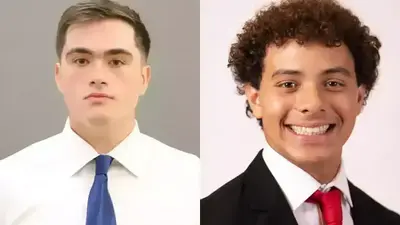The McHenry County College men's soccer team has a long history of success on the field.
They've won five conference championships, produced three All-Americans and have a long list of players who have gone on from the two-year school to play at other locations. That success continued this past year with a trip to the quarterfinals in the playoffs after making it to the semifinals the previous season. It's a lot to be proud of.

But the achievements on the field aren't the only things the local college is satisfied in accomplishing with its soccer program.
"We define success in a lot of different ways," head coach and three-time Illinois Skyway Collegiate Conference (ISCC) Coach of the Year Karl Smith recently told the McHenry Times. "Some kids do go on to play soccer. Like last year, we had two kids go on to play with the local professional team, the Chicago Mustangs. But we also have kids that go on to a four-year school and don't necessarily play. It's more about their education and how soccer gave them an opportunity to start that educational process. If they're going to play soccer, that's great. There's an opportunity for a lot of these guys to do that. But we've had a lot of guys that have had a lot of other success. Guys that are working at hospitals, guys that are starting their own businesses, guys that are working at banks. Soccer was their entry point into getting their education to be able to (to get to) where they are today."
In addition to their career goals, the program at McHenry aims to teach its players the nuances of the game. The program has a goal of teaching kids to play the right way, regardless of how the wins and losses turn out in the standings.
"We want to teach the kids, but we also want to get them into a position where they can teach the game as well," Smith said. "That helps them understand the game a lot more. We've always been willing to take a loss here and there in order to learn, to always try to play the game the correct way."
That focus on doing things right both on and off the soccer field has led to accomplishments for many of the players. For instance, recent backup goaltender Miguel Solis utilized the soccer program at McHenry as a springboard to kick-start his career in the medical field.
"Miguel was always very committed to the program and always very committed to his grades," Smith said. "And now he''s working at a hospital. And I like to look at him not necessarily from a soccer standpoint, but soccer gave him an opportunity to go to school and stay focused; and he was able to transfer, get his degree and find a job."
It's those types of success stories off the field that are most important to the program. Despite the program's history of winning, the team faces some challenges in competing with other schools in the area, so it's important that the team prepares the players for life after soccer as well.
"Some of these teams have so much talent that they can just roll the ball out and start winning right away," Smith said. "Our situation with soccer is we're always going to be a smaller school. Especially in our region, we're playing against some giant community colleges. And then you look at some of these high schools and where their districts lie. We have a lot smaller high school, so we have a smaller player pool. And then on top of that, not all of the schools in our district have high school soccer. We might have 25 to 30 kids that are on our radar when we start our season, where (other schools) have 60 or 70 kids. So we have to do a lot more with less in terms of personnel. So one of the things I've always tried to focus on is trying to make the kids better players when they come in. One of the things I said to guys is, 'You're going to become a much better player from a technical standpoint and you're going to become a much better player from a tactical standpoint, and you should be able to coach at the end of this.'"
Moving forward, the team wants to continue embracing this philosophy of turning out well-rounded student athletes. And playing soccer at McHenry offers potential incoming students an opportunity they might not have elsewhere, and it's one Smith hopes local high schoolers take better advantage of.
"More than anything, we want to see more kids consider the level and keep playing the sport," Smith said. "You see a lot of kids that play the sport, but they might fall into a situation where they can't continue to play at a four-year level. I think what kids don't understand is how good the level of play is, at least in our part of the country. We have a very good and competitive conference and region that gives the kids the right competition and the right training environment to at least continue their career and at least see what is beyond that. Not only can they save a lot of money, but they can also continue their careers. I see a lot of kids give up the game because they would rather go away to school. But there's still a lot to be learned at this level, so if they get involved with a program like ours, they can continue to develop as a player and then transfer to a four-year school. We'd like to see some more kids go that route as opposed to walking away from the sport."




 Alerts Sign-up
Alerts Sign-up